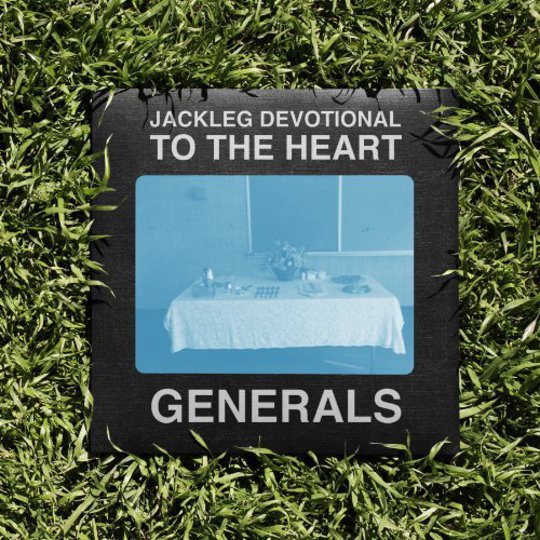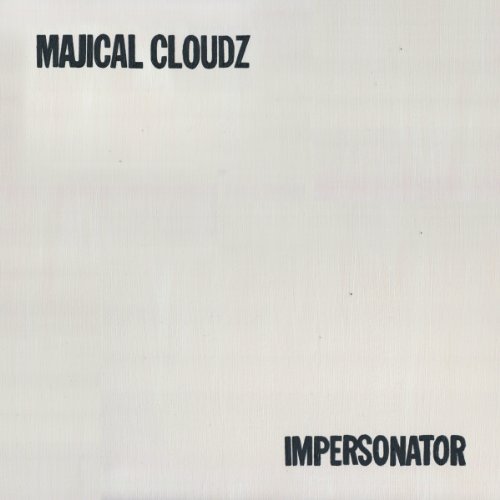Note: For the sake of brevity, this review will crudely reduce a broad and nuanced subgenre to the umbrella term 'Alternative Indie-ish Folk Or Something' (AIFOS).
Let’s start with a segment from Stevie Chick’s defence of hand-knitted heartthrobs Neutral Milk Hotel. 'I can easily imagine kids, buzzed on their first viewing of Garden State, slipping a pair of headphones on the ears of their wannabe-beau and whispering "Neutral Milk Hotel will change your life," as the opening strums of "The King Of Carrot Flowers Pt 1" strike up. Thing is, The Shins never changed anybody’s life; I can imagine that Neutral Milk Hotel have.'
If we take the Shins as the AIFOS everyband, the above is an effective indictment of the entire genre - James Mercer the cliché, Jeff Mangum the rule-proving exception. But despite capturing that limp and icky AIFOS (senti)mentality, Chick’s analysis doesn’t sit right. The Shins coined their own language in crisp, evocative songwriting; songs that make little sense but just enough nonsense to enchant; that concern people, not teenagers. Generally speaking, popular lyrics are comparable to a kind of semi-narrative poetry, but Mercer’s ilk - bands like Denton’s The Baptist Generals - share as much with a certain breed of short story author: by simply joining within a paragraph or verse some dreamtrail of abstract ideas, their songs sneak up through your emotional cellar door without oversharing. This idea - that troubling feelings should be evaded and codified, rather than directly addressed - is often instrumental in adolescent development. (Or 'life-changing', if you prefer.)
The first Baptist Generals record in a decade, Jackleg Devotional to the Heart brims with this suggestive idea linkage, now characteristic of most worthwhile AIFOS. Blindfolded, you could throw darts at the record and find textbook examples. Take one from ‘Turnunders and Overpasses’: “Turnunders and overpasses / Directions change and you are different today / Counsel the stars / The arrows go contrary ways / With no turnunders and overpasses.” What’s going on here? Professional malaise, some mazy road to redemption or death, hopelessness in a universe too vast to navigate? Throughout the record Rorschach images jump out the speakers - for hours you could mull and furrow to interpret the things.
Whether many will is a point of contention. For all the band’s allusions to tropicália, avant-prog and modern classical (and fair play to mainman Chris Flemmon, who in 2005 scrapped an ancestor of this record for being too 'indie'), Jackleg’s subtle variance of palette fails to gel into a diverse-sounding record. There’s a lingering air of AIFOS conservatism, though that’s not for want of experimentation: ‘Broken Glass’ is a Reich-esque steel drum mantra, overlaid with Flemmon’s slightly whiny, kicked-dog sing-speak; opener ‘Machine En Prolepsis’ gallops across strummed instrumental pastures before passing out in a sort of cello-buttressed tranquility; ‘3 Bromides’ is a wild rant yelled over metallic acoustics and reverb-spanked guitars, like a neglected West Texan butcher in a slow-motion abattoir.
While really intriguing moments are rare, it’s true that when things click you suspect you’ve missed others. Most alluring is ‘Clitorpus Christi’. Ominous acoustic guitar gongs introduce a smalltown tale of personal ghosts and one-room motels: “My god that trollop was loud / She told me that I was her king / ’Cause I paid her well / She could lie like my mother.” Such grisly observations are typical of a songwriter whose every mundane surrounding is a reminder of interior inadequacy: “I cannot get out of this public house / Where the soap gets stolen every single day / Another day I get to smell myself.”
Flemmon, who lacks the authorial eye of his friend John Darnielle, focusses on specifics. In bypassing the necessary invocation of generalities, however, he doesn’t always make them count. Still, in a genre stacked with pathological mediocrity, Jackleg Devotional to the Heart is a relatively sure-footed success - at worst enjoyable fluff, at best a provocative, quietly electrifying treasure.
-
6Jazz Monroe's Score






















